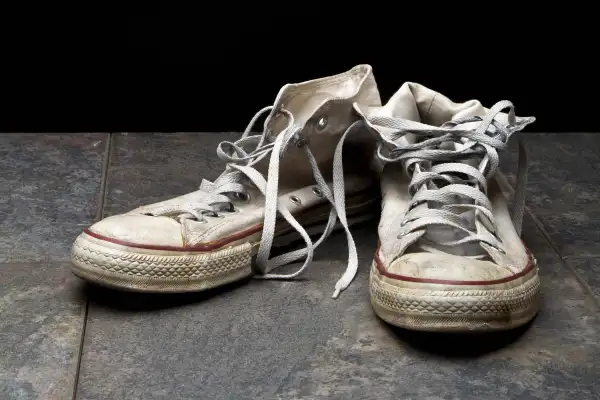I'm Glad I Didn't Grow Up With Money. Here's Why
Money is not a client of any investment adviser featured on this page. The information provided on this page is for educational purposes only and is not intended as investment advice. Money does not offer advisory services.

I deeply admire the writer Neal Gabler for coming clean about his financial woes in article "The Secret Shame of Middle-Class Americans" in the May issue of The Atlantic. As he writes, a Federal Reserve Board survey found nearly half of Americans say they would have trouble finding $400 for an emergency. He says he is one of them.
Gabler, an author, writer and one-time television co-host, lays out a laundry list of bad luck and bad choices: a Brooklyn co-op he had to sell at a loss because the board rejected potential buyer after buyer for two years; draining a 401(k) to pay for a daughter’s wedding; getting sued by his publisher to return an advance when he failed to meet a book deadline (“...cutting corners to turn [books] out faster,” he writes, “would be cutting off my career.”) He sends his two children to private high school and calls the cost of college “the biggest shock” (one of his kids attends Stanford; his parents help pick up the bill).
I would be the first to agree that the middle class is under siege, amid stagnant wages, job loss, sky-high costs of housing, education and medical care. But what jumped out at me from Gabler’s essay was this line: “We don’t make [choices] with our financial well-being in mind, though maybe we should. We make them with our lives in mind. The alternative is to be another person.”
No, I thought, the alternative is to be a responsible person. To not assume you and your children are entitled to things you can’t pay for in cash. To not assume your salary will always go up. To recognize that college and retirement are things you can actually save for if you commit to setting a little money aside for them month after month, year after year, and prioritize them over vacations and Starbucks and even comfortable levels of heat in your home (that’s what sweaters are for, people). To never, ever put lifestyle-related spending on a credit card unless you can pay it off at the end of the month. To save in advance for big things, even cars, to avoid paying interest. To skip the kitchen upgrade and family room addition because a home equity loan is exactly that — a loan — and another monthly payment. And to swallow your pride and make super hard choices when your inflow doesn’t cover the outflow.
This does not require much financial literacy. It’s just common sense. But then it hit me: This common sense is the fruit of growing up without a lot of money. To be clear, I didn’t grow up in poverty. My dad was a dentist. But there were 11 children in our family to feed and clothe and house and educate — so we had to be enterprising and creative to get the things we wanted, whether it was a ten-speed bike or a night at the movies. My parents gave us help getting through the state college, but I paid for most of my undergrad myself with scholarships and work, and all of graduate school, dollar by dollar, semester by semester. It took eight years.
When you’re given the gift of not coming from money, you watch your pennies. You work full-time and have side gigs, always. You know that not only will your parents not be able to help with the kids’ college tuition, they won’t be able to help with the mortgage or groceries if the bottom falls out. So you set real goals, with hard numbers and timelines attached to them, and you watch the bottom line like a hawk. And through the job losses, and family illnesses, and the gazillion expenses that come with raising healthy and educated children, you bounce back, and bounce back, and bounce back, and keep the faith. Because you are your only safety net. Because you saw your parents do the same.
The hard choices aren’t really that excruciating because you’ve been there and done that: You went hungry that night in college when you ran out of money. You walked around with holes in your shoes waiting for a paycheck from your first job. You slept in a 6 x 6-foot loft — a fort really — in a teeny tiny apartment, with a roommate, to make the rent. You just didn’t know that you would eventually be grateful for these experiences — that they would empower you, that they would inspire you to be ingenious with a buck. And they would make you deeply, deeply appreciative of all the wonderful experiences money can buy.
My husband and I have been lucky enough to meet a lot of our financial goals, and that has led to well-being and low stress. But I don’t live in the land of the financially self-righteous. I have seen enough loved ones get randomly and unfairly ravaged by the economy and misfortune to ever let my guard down. My hope is that Millennials will read Gabler’s story and understand the truth: Money is a precious resource, and a tool to get the things you value most in life. So yes, set goals, with timelines. Back into what you need to save today to get to where you want to be tomorrow.
Go ahead and make choices with your financial well-being in mind. It doesn’t make you another person. It makes you a responsible person. It makes you free.
Laura Rowley is the author of "Money and Happiness: A Guide to Living the Good Life." This essay originally appeared on The Huffington Post.